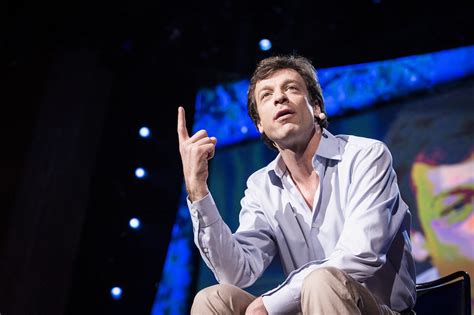A Quote by Robin Marantz Henig
The human brain has evolved the capacity to impose a narrative, complete with chronology and cause-and-effect logic, on whatever it encounters, no matter how apparently random.
Related Quotes
It is in the very nature of a beginning to carry with itself a measure of complete arbitrariness. Not only is it not bound into a reliable chain of cause and effect, a chain in which each effect immediately turns into the cause for future developments, the beginning has, as it were, nothing whatever to hold on to; it is as though it came out of nowhere in either time or space.
As a cultural form, database represents the world as a list of items and it refuses to order this list. In contrast, a narrative creates a cause-and-effect trajectory of seemingly unordered items (events). Therefore, database and narrative are natural enemies. Competing for the same territory of human culture, each claims an exclusive right to make meaning out of the world.
It is now generally accepted that the roots of our ethics lie in patterns of behavior that evolved among our pre-human ancestors, the social mammals and that we retain within our biological nature elements of these evolved responses. We have learned considerably more about this responses, and we are beginning to to understand how they interact with our capacity to reason.
...It is impossible, I say, for the human mind not to believe that there is in all this design, cause, and effect up to an Ultimate Cause-a Fabricator of all things, from matter and motion-their Preserver and Regulator while permitted to exist in their present forms-and their Regenerator into new and other forms.





































